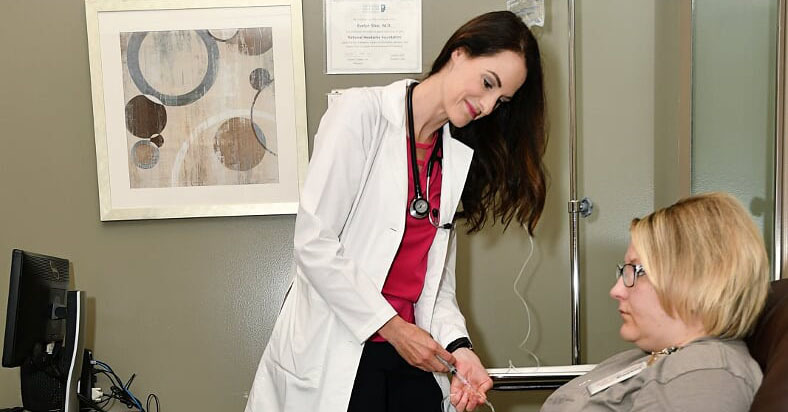
While the spring’s temperature warm-up is often a welcome respite from the harsh seasonal conditions of the winter, the often maligned side effect that comes with the defrost, are seasonal allergies. More than 50 million Americans experience various types of allergies each year; which means, symptoms like sneezing, congestion, runny nose and headaches are all around.
“Symptoms can be treated fairly easily with oral antihistamines, decongestants, nasal steroids or a combination of the above,” Nichole Campbell, APRN, NP-C, a nurse practitioner with Texas Tech Physicians Headache Clinic in Amarillo, said. “Avoiding known allergens is often the best form of treatment but is not always possible-- hello, West Texas wind.”
Campbell said the sinus headaches that frequently impact people during this season might be more than seasonal allergy-induced, though, because one of the most misdiagnosed headaches is the sinus headache.
“Chronically recurring headaches attributed to sinus disease are often migraines. In a study, evaluation of 100 adults with self-diagnosed sinus headaches determined that 85% of them had migraines; while only 3% had headache associated with rhino sinusitis,” Campbell said. “Among patients with definite migraine, several headache features including pain over sinuses, nasal congestion, eyelid edema, rhinorrhea, conjunctival injection, lacrimation and ptosis were reported to result in an inaccurate diagnosis of sinus headache.”
Campbell said triggers like weather changes, seasonal variation, exposure to allergens, and change in altitude are equally common in both sinus and migraine headache patients. Sinus headaches are infrequent and associated with pain and pressure in the face and sinuses and can cause nasal symptoms. Most headaches are not caused by sinus infections and should not be treated with antibiotics. Treating the inflammation with nasal steroids and avoiding allergens is key in treating these headaches.
So how do you know the difference?
“A headache that is not disabling, and has other features of a sinus headache due to seasonal allergies, is more than likely a sinus headache,” Campbell said. “Migraine may be confused with sinus headaches due to satisfactory response to antihistamines. If you are experiencing debilitating headaches that include sensitivity to light or sound, and that have a pattern to them like they occur with weather changes, seasonal variations, change in altitude, etc., you may be experiencing migraines.”
Migraines are a very common condition, with 15.3% of Americans aged 18 years or older reporting a migraine or severe headache in the previous three months, according to the CDC. Migraines can be severely debilitating and are considered one of the main causes of disability worldwide.
“At the Texas Tech Physicians Headache Clinic, we are dedicated to the diagnosis and treatment of common headache conditions. Our comprehensive, innovative, clinical care aims to provide personalized treatment plans for patients,” Campbell said. “Our multidisciplinary approach allows our staff to use physical therapy, nutrition, pain psychologists, interventional pain specialists and integrative medicine providers to improve your headaches.”
